Club Bridge
Modiano’s ‘Club Bridge’ is a new edition of a stylish deck originally published in c.1895.
Modiano Club Bridge
Modiano’s ‘Club Bridge’ is a new edition of a classic deck originally published by D. Modiano for the Austrian Lloyd Steamship Company of Trieste in c.1895, but this time with the addition of four indices, a new joker and a ‘Club’ back design which give players additional satisfaction in the design of the cards.
The superb artwork and attention to detail evokes the luxurious atmosphere of high-end land-based casinos where you could see and feel the beauty and artistry of such cards, unlike those in a virtual live baccarat game where the cards are just plain simple. Even after 100 years, the smart designs are very appealing and it's easy to see why they are so successful. Decks of Modiano playing cards designed by top graphic artists, as well as all the Italian regional standard patterns, printed on the finest material, are still on sale throughout the world, even though the Trieste factory has since passed to other hands. In 1987 Modiano was bought by Grafad, a paper and cardboard industry.
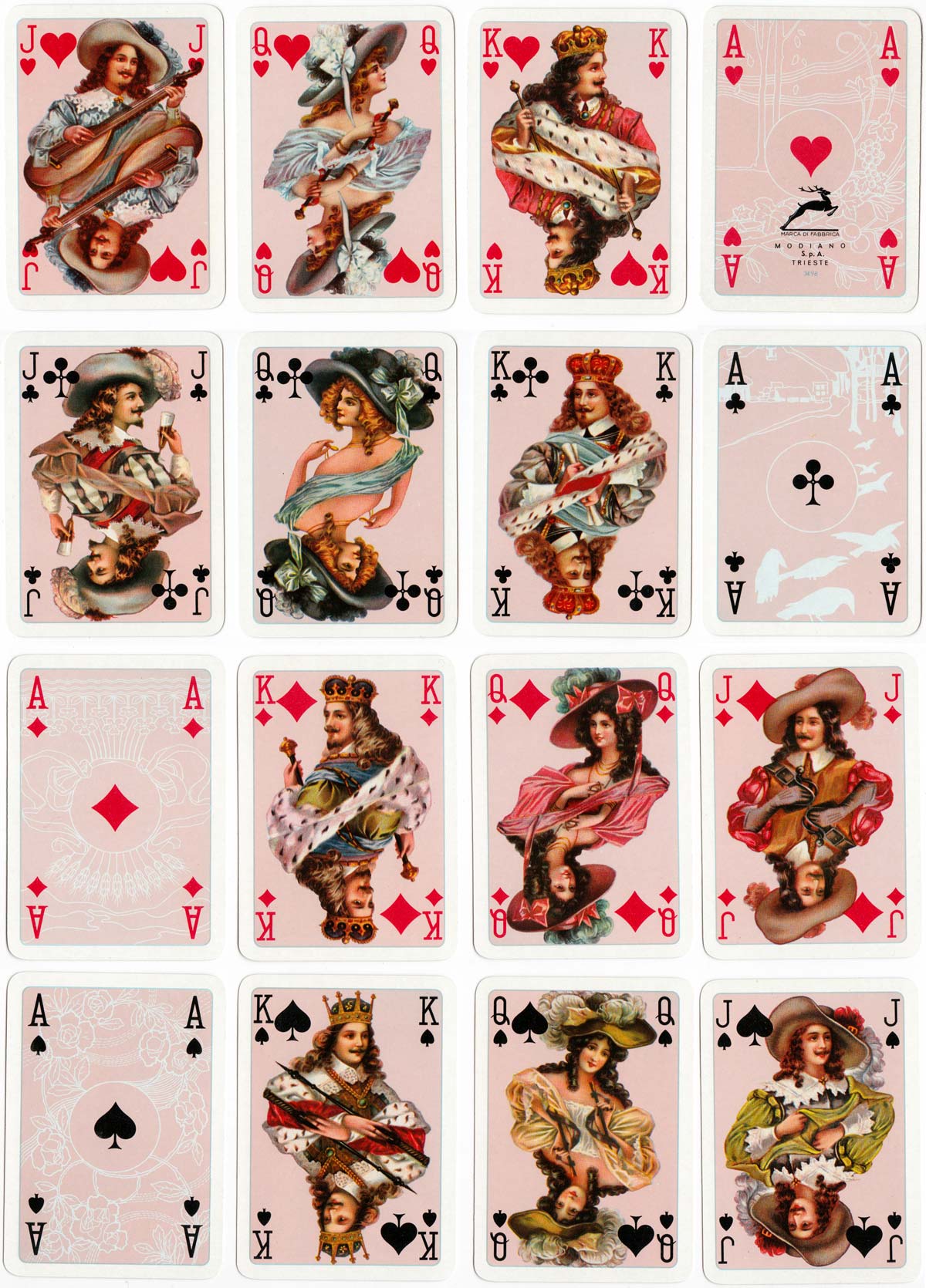
Above: Modiano ‘Club Bridge’ with elegant court card designs, 1990s. Size = 63 x 88 mm. Images courtesy Rex Pitts.
Saul D. Modiano (1834-1922) was an entrepreneur who made the Modiano name famous all over the world with playing cards and fine cigarette paper which he manufactured in his factories in Trieste and Bologna. The first factory was established in 1873 and the business expanded rapidly. In 1884 chromolithographic printing facilities were added to produce artistic prints of superior quality. It was here that Modiano started producing playing cards, known as the “Great Mogul”, for which there was enormous demand from India. At a later stage the factory was placed under the direction of Giacomo Modiano (b.1911), grandson of Saul's brother Giacomo. Giacomo junior had a brother Marcello (1914-93) who was President of Confindustria, the Italian Federation of Small Industries, and later was elected member of the European Parliament. In 1987 Modiano was bought by Grafad, a paper and cardboard industry.
REFERENCES
Note from Roddy Somerville
I have a different Ace of Hearts in my copy of Modiano's Club Bridge pack which is also a different size: 58 x 88 mm. The colouring on the courts also differs slightly between the two versions. I have no idea what the initials "M.R.C.D." stand for - does anyone have any ideas? R.S.
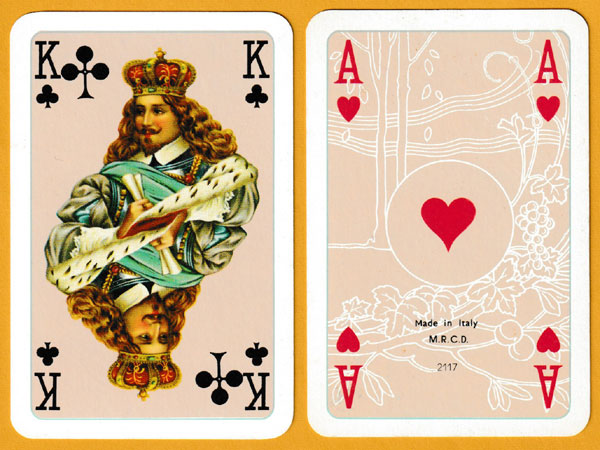
By Rex Pitts (1940-2021)
United Kingdom • Member since January 30, 2009
Rex's main interest was in card games, because, he said, they were cheap and easy to get hold of in his early days of collecting. He is well known for his extensive knowledge of Pepys games and his book is on the bookshelves of many.
His other interest was non-standard playing cards. He also had collections of sheet music, music CDs, models of London buses, London Transport timetables and maps and other objects that intrigued him.
Rex had a chequered career at school. He was expelled twice, on one occasion for smoking! Despite this he trained as a radio engineer and worked for the BBC in the World Service.
Later he moved into sales and worked for a firm that made all kinds of packaging, a job he enjoyed until his retirement. He became an expert on boxes and would always investigate those that held his cards. He could always recognize a box made for Pepys, which were the same as those of Alf Cooke’s Universal Playing Card Company, who printed the card games. This interest changed into an ability to make and mend boxes, which he did with great dexterity. He loved this kind of handicraft work.
His dexterity of hand and eye soon led to his making card games of his own design. He spent hours and hours carefully cutting them out and colouring them by hand.

Leave a Reply
Your Name
Just nowRelated Articles
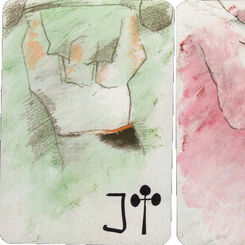
Emilio Tadini playing cards
Beautiful dreamlike playing card designs by Emilio Tadini.
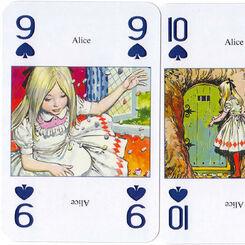
Alice in Wonderland by Jesús Blasco
Alice with artwork by Jesús Blasco, published by Lo Scarabeo, 2003.
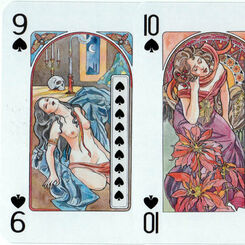
Liberty
Liberty playing cards designed by Antonella Castelli, published by Lo Scarabeo, 2003.
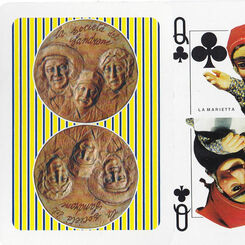
Baracca & Burattini
Baracca & Burattini puppetry deck printed by Dal Negro, 1998.
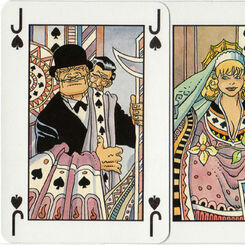
Martin Mystère
Martin Mystère based on the comic book by Alfredo Castelli. The cards were designed by Giancarlo Ale...
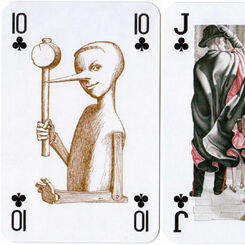
Pinocchio
Pinocchio fairy tale playing cards illustrated by Iassen Ghiuselev for Lo Scarabeo, 2003.
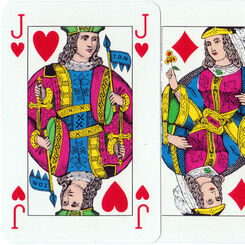
Dal Negro Bridge set
Dal Negro Bridge set featuring old Vienna pattern courts.
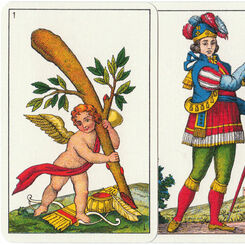
Sarde Pattern
Sarde pattern published by Modiano, c.1975, based on early XIX century Spanish model.
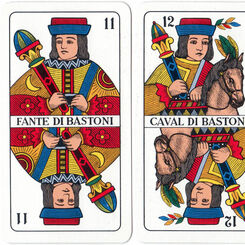
Triestine Pattern
The Triestine pattern is derived from the Venetian (Trevisane) pattern but with its own characterist...

Primiera Bolognese
Primiera Bolognese by Modiano, c.1975

Bergamasche Pattern
Bergamasche Pattern by Modiano, 1970s.
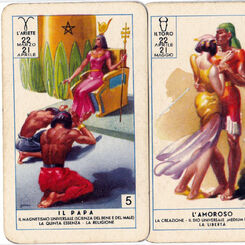
Il Destino Svelato Dal Tarocco
The Cagliostro Tarot was first published in 1912 as “Il Destino Svelato Dal Tarocco”.
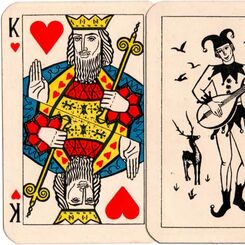
Anonymous Dutch deck, 1940s
Anonymous Dutch deck, 1940s
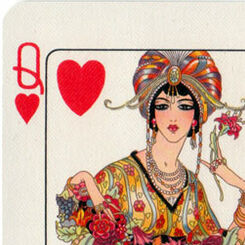
World Bridge
‘World Bridge’ produced by Modiano in Trieste, Italy, since around 1950.
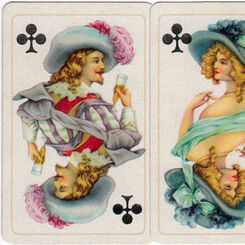
Modiano Patience
Patience cards published by Modiano, c.1945.
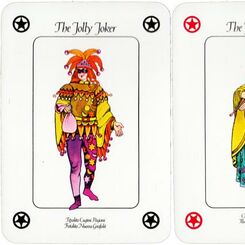
Credito Commerciale
Playing cards designed by Enzo Laurà for Credito Commerciale, 1978.
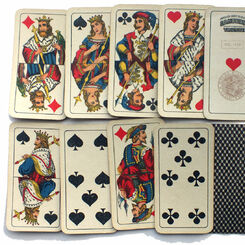
Lombardy (or Milanesi) pattern
The origins of the Lombardy pattern probably lie in the early 19th century when it was a full-length...
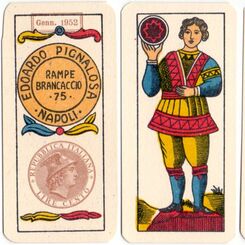
Brescia pattern
The Brescia pattern contains elements which come from a past age.
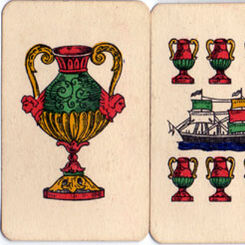
Sicilian Pattern
The Sicilian pack has a similar composition to the Neapolitan pack, and is small and squat in appear...

Neapolitan Pattern
Cartine da Gioco Vesuvio miniature Neapolitan pattern.
Most Popular
Our top articles from the past 60 days


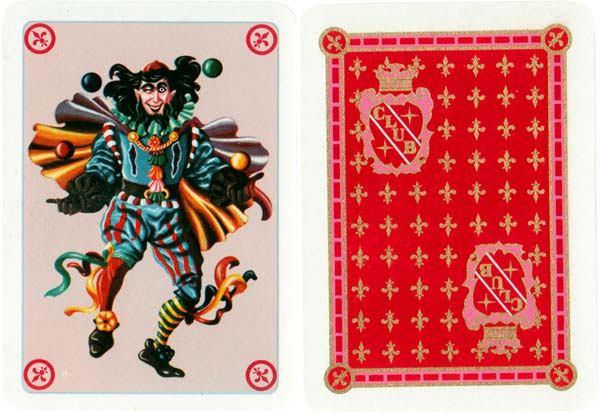
 Your comment here. Your comment here. Your comment here. Your comment here. Your comment here. Your comment here. Your comment here. Your comment here. Your comment here. Your comment here. Your comment here. Your comment here. Your comment here. Your comment here. Your comment here. Your comment here. Your comment here. Your comment here. Your comment here. Your comment here. Your comment here. Your comment here. Your comment here. Your comment here. Your comment here. Your comment here. Your comment here. Your comment here. Your comment here. Your comment here. Your comment here. Your comment here.
Your comment here. Your comment here. Your comment here. Your comment here. Your comment here. Your comment here. Your comment here. Your comment here. Your comment here. Your comment here. Your comment here. Your comment here. Your comment here. Your comment here. Your comment here. Your comment here. Your comment here. Your comment here. Your comment here. Your comment here. Your comment here. Your comment here. Your comment here. Your comment here. Your comment here. Your comment here. Your comment here. Your comment here. Your comment here. Your comment here. Your comment here. Your comment here.




















